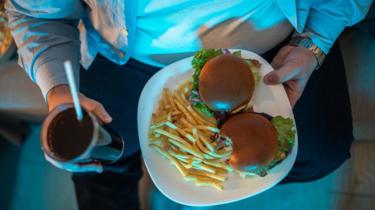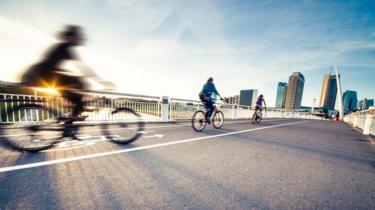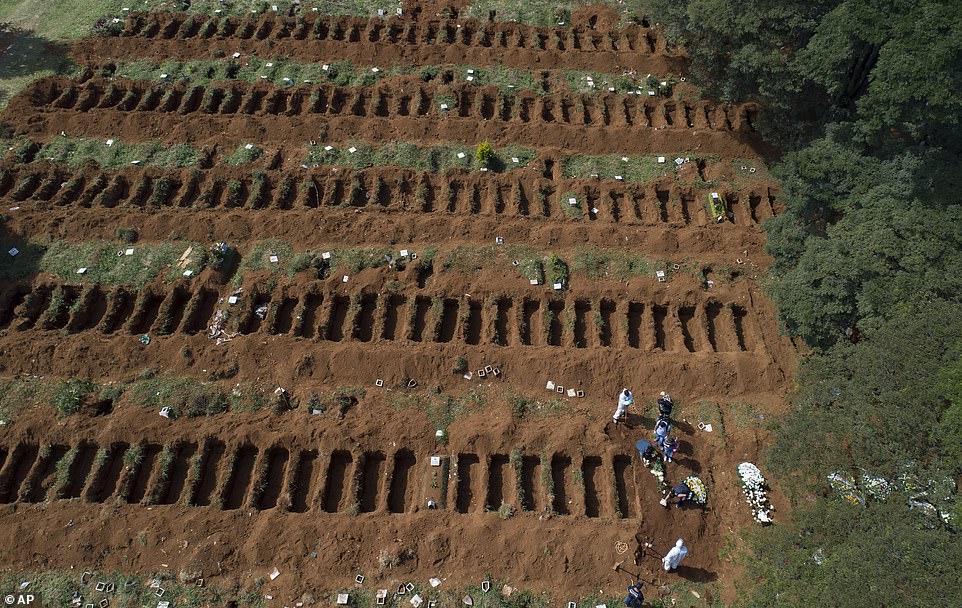- 6 hours ago
Welcome to Awoyele Olayemi's blog:arena for News, Events, Lifestyle, Fashion Beauty, Inspiration,Entertainment, and lots of fun.
Saturday, 4 April 2020
Thursday, 2 April 2020
Countries without coronavirus
Despite the daily increase in the number of COVID-19 cases globally, about 18 countries have not confirmed any positive case.
Preventive and containment measures have been put in place to ensure the virus does not spread to them.
All countries in Europe, North America, and South America have reported at least a case of the virus while Africa, Asia, and Australia still have some virus-free countries.
Africa
Although countries in Africa started confirming cases in February, 49 out of the 54 countries in the continent have confirmed cases of COVID-19.
The remaining five countries, Comoros, Lesotho, Malawi, Sao Tome and Principe, and South Sudan remain virus-free.
Comoros shares a border with Mozambique, Tanzania, Madagascar, and Seychelles, nations who have each recorded more than nine cases, yet has none.
In Comoros there is no testing available for COVID-19, according to the U.S. embassy in Madagascar and Comoros. Nonetheless, passengers who have “transited through China or Japan face entry travel restrictions or quarantine.”
Lesotho is enclaved within South Africa. South Africa has the highest number of cases on the continent, confirming 1,1380 cases, five deaths, and 50 recoveries.
On March 30, authorities implemented a lockdown and entry restrictions to curb the spread of the virus. The lockdown is expected to last for 21 days.
Citizens during this period are permitted to buy food and seek medical care.
Businesses except for supermarkets, pharmacies, banks, petrol stations, and health care centres have been shut.
Malawi, Sao Tome and Principe, and South Sudan all share borders with affected countries.
In Malawi (bordered by Zambia, Tanzania, and Mozambique) a state of disaster was declared by the government on March 31 due to the pandemic. Prior to the declaration, all schools and universities were closed since March 23. Public gatherings of more than 100 people have been banned.
The Malawian government also placed a ban on foreign nationals arriving from places seriously affected by Covid-19, except for SADC countries.
In Sao Tome, the government extended the state of emergency for another 15 days.
Sao Tome shares maritime borders with Equatorial Guinea, Gabon, and Nigeria.
Meanwhile, most precautionary and containment measures in South Sudan are focused on creating awareness. Across the country a “campaign raising awareness on the coronavirus disease and how to best protect yourself and your family” is being rolled out.
There is a total of 6,383 confirmed Covid-19 cases in the African continent.
Asia
Asia which comprises of 48 countries has four COVID-19 free countries: North Korea, Tajikistan, Turkmenistan, and Yemen.
These countries are all bordered by countries which have confirmed a case of the virus.
In Tajikistan, travel restrictions and mandatory quarantine has been implemented by the government.
Turkmenistan, an isolated Asian country with one of the most repressive governments, has, according to Reporters Without Borders (RSF) who published a rebuke for the President, Gurbanguly Berdimuhame, allegedly placed a ban on the word ‘coronavirus’.
Turkmenistan is surrounded by Iran, Afghanistan, Uzbekistan, and Kazakhstan, countries which all have numerous Covid-19 cases.
Despite the global ceasefire call by the UN Chief, Antonio Gueterres, last week due to the ongoing COVID-19 pandemic, fighting continues in Yemen.
A group, Group of Eminent International and Regional Experts on Yemen, said in a statement that “prisoners and detainees in Yemen are particularly vulnerable – and at high risk of death if the novel coronavirus emerges in overcrowded prisons and other detention facilities.”
They further said that “the health system in Yemen is on the brink of collapse and that prisoners must cope with a lack of adequate food and minimum standards of hygiene and contravene standards set by international law.”
Australia
In Australia, Solomon Islands, Palau, Tuvalu, Nauru, Kiribati, Federated State of Micronesia, Vanuatu, Tonga, and Marshal Islands have not confirmed a case of the virus.
Many of the countries within the continent are ill-equipped, according to The Guardian, as they are reliant on sending samples overseas.
Solomon Islands and Kiribati denied entry to citizens coming from high-risk countries. Micronesia has placed an entry ban on anyone who has been in any country with a confirmed case of coronavirus. Marshall Islands have shut down their borders.
Resorts in the continent are “emptied of tourists and some countries have found their spacious and secluded grounds useful quarantine sites.”
Countries on the Australian continent have nearly 6000 cases.
All figures in the report are gotten from Worldometer.
Monday, 30 September 2019
Causes of sweat and body Odour
Sweating is the secretion of fluids by sweat glands onto the surface of the skin, mainly for the purpose of maintaining body temperature within an ideal range. This happens when the body temperature rises due to physical exertion or being in hot surroundings, the evaporation of sweat from the skin produces a cooling effect.
Sweat doesn’t smell, however, one can develop an odour when the acids in the sweat are being broken down by skin bacteria. The waste products from this breakdown process produce an offensive smell referred to as BODY ODOUR.
WHEN CAN ONE LIKELY HAVE BODY ODOUR?
Once a person reaches puberty, body odour begins to occur as this is when the apocrine glands, which are located in the armpits, breasts, and genital-anal area become developed. Males are more likely to have body odour than females because they sweat more than females.
WHO’S IS AT RISK OF HAVING BODY ODOUR
Below are categories of people at higher risk of having body odour;
1. Obese People
2. Persons who regularly eat spicy food
3. Individuals with certain medical conditions such as diabetes, hyperhidrosis (People who sweat too much), etc are more susceptible to having body odour.
Body odour can have a pleasant and specific smell to the individual and can be used to identify people, especially by dogs and other animals. Each person’s unique body odour can be influenced by diet, gender, health, and medication.
CAUSES OF BODY ODOUR
Body odour is caused by bacteria breaking down sweat and is largely linked to the apocrine glands. These glands are found in the breasts, genital area, eyelids, armpits, and ear. In the breasts, they secrete fat droplets into breast milk. In the ear, they help form earwax. Apocrine glands in the skin and the eyelids are sweat glands.
The apocrine glands are mainly responsible for body odour because the sweat they produce is high in protein, which bacteria can break down easily.
Also, medical conditions such as Overweight, diabetes, gout, tumour, menopause, frostbite, overactive thyroid, pituitary gland disorders, head injury, excessive alcohol consumption, infectious diseases, etc are also the leading causes of body odour
DIAGNOSIS AND TREATMENT OF BODY ODOUR
If you have an offensive body odour and you are concerned about you could see your doctor who may in some cases prescribe aluminium chloride.
However, to curtail body odour, one is advised to;
1. Use of Antiperspirants which contains aluminium-based compounds that temporarily block sweat pores, thereby reducing the amount of perspiration that reaches your skin.
2. Use of Deodorants contain perfume fragrances intended to mask odour. Deodorants can eliminate odour but not perspiration and are usually alcohol-based and can turn your skin acidic making it less attractive to bacteria.
3. Gradual shift in lifestyle which includes;
a. Regular bathe daily with an antibacterial soap.
b. Choose clothing to suit your activity.
c. Adopt relaxation techniques such as yoga, meditation or biofeedback which can help teach you to control the stress that triggers perspiration.
d. Change your diet by reducing caffeinated beverages and spicy or strong-smelling foods which may make you sweat more or have stronger body odour than usual.
Friday, 13 September 2019
Cercueil du Mugabe 17 milliards
Quel monde?
CASE MUGABE
17 milliards de monnaie Zim du cercueil de Robert Mugabe👆👆👆👍🏻👍🏻
a été informatisé de manière à ce que, après son inhumation, sa famille puisse surveiller sa dépouille à l'aide de leurs appareils téléphoniques ...
Selon les fabricants de London Casket qui ont fourni le cercueil, les installations qu’il contient protégeront sa dépouille de la décomposition pendant les dix prochaines années (...). Cela implique toutefois que, mis à part ses relations avec sa famille, tout membre de sa famille qui souhaite regarder ses restes dans la tombe devront y accéder via ses appareils téléphoniques.
Le blanc est toujours au sommet en utilisant nos cerveaux.
Mais ce que la famille ne peut évidemment pas faire avec leur argent pillé, c’est lui faire revivre !!!
Mugabes's computerised casket worth N17B arrived. Picture
Robert Mugabe's family say they are shocked at not having been consulted by the government about arrangements for the funeral of the former Zimbabwean president.
Mr Mugabe, who was 95, died last week while undergoing medical treatment in a Singapore hospital.
His body is now lying in state at the Rufaro football stadium in Zimbabwe's capital, Harare.
His family and the government disagree over Mr Mugabe's final resting place.
Mr Mugabe's family says his body will be displayed in his home village of Kutama on Sunday night, and will be buried at a private ceremony.
Thousands of mourners are queuing up at Rufaro stadium to pay their respects to Mr Mugabe.

There was a brief stampede as people rushed forward to catch a glimpse of the former leader, Reuters news agency reported.
Trust Nyakabawo told Reuters at the Rufaro stadium: "We are in pain after his death because we were so used to seeing him alive as a father figure that led the country well."
His body will lie in state at Kutama on Sunday night... followed by a private burial - either Monday or Tuesday - no National Heroes' Acre [the national monument for liberation heroes]. That's the decision of the whole family," his nephew Leo Mugabe told the AFP news agency.
President Emmerson Mnangagwa had declared Mr Mugabe a national hero after his death, indicating he should be buried at the national monument.
Wednesday, 11 September 2019
188 Nigeria Returnees from south africa Arrive MMIA
The Air Peace flight MEN2759 conveying 188 Nigerians from South Africa has arrived at the international wing of the Murtala Muhammed International Airport (MMIA) in Lagos at 9:35 pm local time.
The aircraft which departed the OR Tambo International Airport in South Africa, after an eight-hour delay, had on board, 188 Nigerians.
The evacuation of Nigerians follows an order by President Muhammadu Buhari on September 9, 2019, to evacuate Nigerians who are willing to return home from South Africa, after several xenophobic attacks on foreign nationals, including Nigerians.
The President gave this order after he received the report of the special envoy sent to South Africa to convey a Special Message to President Cyril Ramaphosa over the recent xenophobic attacks in the country.
While some people were turned back over inadequate documentation for travelling with children, about seven were detained for allegedly entering the country illegally.
https://www.channelstv.com/2019/09/11/breaking-188-nigerian-returnees-arrive-mmia-from-south-africa/
187 Nigerians Return, South Africa Employs Rules To Stop Others
The number of Nigerians that made it back to Nigeria drastically reduced following moves by the South African government to frustrate the evacuation efforts. Only about 187 adults and children were successfully evacuated on Wednesday as against the 320 Nigerians expected back home.
The flight arrived the Murtala Muhammed International Airport, Lagos, at 9.43pm.
One of the returnees, Uche Victor, told journalists that he left his wife who he said was a Cameronian and a young daughter behind. He said, “I’m bleeding because I left my wife and baby but I have to come back because my mother cries for me to return. If something happens to me she will suffer. I left my business, I came back with nothing. South Africans believe all Nigerians are drug pushers, but I don’t know the colour of any drug.”
Victor, who explained that he left Nigeria for South Africa in 2007, explained that the attacks were anger against the government. “They are only venting their anger on foreigners. They started with black and will move to whites,” he said.
According to him, the flight would have returned earlier but the South African government made it difficult. “The didn’t want us to go but for Nigeria’s consulate,” he added.
Another returnee from Abia State, who gave his name as Onuoha, said a lot of Nigerians were still stranded as they could not return with their properties.
Aliu Saheed, from Osun State, said his shop was burgled and he came back home empty-handed. “But I’m happy to be home, I’m not going back again,” he said.
S’A CANCELS VISAS ISSUED TO RETURNING NIGERIANS
One of our correspondents learnt that the South African authorities went further to cancel visas that were issued to the returning Nigerians. A picture on Facebook showed a Nigerian passport with a cancelled South African visa as of September 10.
The Chairman, Nigerian Diaspora Commission, Mrs Abike Dabiri-Erewa, said there was 15 hours delay before the flight left South Africa. She had earlier told journalists that the South African authorities brought new immigration rules before the affected Nigerians could be allowed to board the aircraft.
According to Dabiri-Erewa, the Federal Government is giving N40,000 worth of airtime to last them for two months as well as stipend of N10,000 for transport. She also said there were plans for the Bank of Industry to provide some money for the returnees to start small businesses.
Meanwhile, the Chief Operating Officer of Air Peace, Mrs Toyin Olajide, said the evacuation would cost the airline about N300m. Olajide said the cost would include payment of passenger service charge, aeronautical and other charges.
SOURCE: https://punchng.com/187-nigerians-return-safrica-employs-rules-to-stop-others/
The flight arrived the Murtala Muhammed International Airport, Lagos, at 9.43pm.
One of the returnees, Uche Victor, told journalists that he left his wife who he said was a Cameronian and a young daughter behind. He said, “I’m bleeding because I left my wife and baby but I have to come back because my mother cries for me to return. If something happens to me she will suffer. I left my business, I came back with nothing. South Africans believe all Nigerians are drug pushers, but I don’t know the colour of any drug.”
Victor, who explained that he left Nigeria for South Africa in 2007, explained that the attacks were anger against the government. “They are only venting their anger on foreigners. They started with black and will move to whites,” he said.
According to him, the flight would have returned earlier but the South African government made it difficult. “The didn’t want us to go but for Nigeria’s consulate,” he added.
Another returnee from Abia State, who gave his name as Onuoha, said a lot of Nigerians were still stranded as they could not return with their properties.
Aliu Saheed, from Osun State, said his shop was burgled and he came back home empty-handed. “But I’m happy to be home, I’m not going back again,” he said.
S’A CANCELS VISAS ISSUED TO RETURNING NIGERIANS
One of our correspondents learnt that the South African authorities went further to cancel visas that were issued to the returning Nigerians. A picture on Facebook showed a Nigerian passport with a cancelled South African visa as of September 10.
The Chairman, Nigerian Diaspora Commission, Mrs Abike Dabiri-Erewa, said there was 15 hours delay before the flight left South Africa. She had earlier told journalists that the South African authorities brought new immigration rules before the affected Nigerians could be allowed to board the aircraft.
According to Dabiri-Erewa, the Federal Government is giving N40,000 worth of airtime to last them for two months as well as stipend of N10,000 for transport. She also said there were plans for the Bank of Industry to provide some money for the returnees to start small businesses.
Meanwhile, the Chief Operating Officer of Air Peace, Mrs Toyin Olajide, said the evacuation would cost the airline about N300m. Olajide said the cost would include payment of passenger service charge, aeronautical and other charges.
SOURCE: https://punchng.com/187-nigerians-return-safrica-employs-rules-to-stop-others/
Signs of a slowdown in new type 2 diabetes cases
Signs of a slowdown in new type 2 diabetes cases
 Image copyrightGETTY IMAGES
Image copyrightGETTY IMAGES
The number of new cases of type 2 diabetes could be stabilising, or even falling, a study suggests.
The analysis looked at 47 studies from the mid-1960s up to 2014, mainly from the US and Canada and countries across Europe including the UK.
A third of populations studied between 2006 and 2014 saw a fall in new cases and another third were stable.
But Diabetes UK said the challenges of obesity and unhealthy lifestyles, both linked to the condition, remained.
Prof Dianna Magliano, head of diabetes and population health at the Baker Heart and Diabetes Institute, in Melbourne, who led the study, said: "We are seeing a flattening of incidence and even a fall in many high income countries in the recent years."
'Potential plateau'
 Image copyrightGETTY IMAGES
Image copyrightGETTY IMAGES
Studies between 1990 and 2005 showed the number of new cases increased in two-thirds (67%) of populations studied, was stable in 31% and decreased in 2%.
But from 2006 to 2014, increases were seen in only a third, with 30% staying stable and 36% declining.
Prof Magliano said: "The most obvious conclusion to be drawn from falling incidence is that we are succeeding in reducing the risk for developing diabetes in the population."
The studies did not reveal the level of undiagnosed diabetes in populations - and a different test for type 2 diabetes was introduced around 2010.
But Sarah Wild, professor of epidemiology at the University of Edinburgh, said the findings echoed what she had seen in Scotland.
"There does seem to be a flattening of new cases of diabetes," she said. "Why that is seems to be a bit of a puzzle.
"It's good news. But that doesn't mean we can take our eye off the ball."
'Challenges remain'
Dr Emily Burns head of research communications at Diabetes UK, said: "This study looks at type 2 diabetes through a different lens, reporting on the number diagnosed rather than the number living with the condition - which can often be distorted by factors such as how long people live for.
"With this in mind, it's promising to see that the number of people being diagnosed with type 2 diabetes might potentially be plateauing in certain parts of the world."
But she added: "The challenges posed by obesity and unhealthy lifestyles - the two main drivers for type 2 diabetes - remain significant.
"That's why, while the findings are interesting, this study doesn't detract from the seriousness of the growing diabetes crisis and the vital prevention efforts under way to help tackle this."
Subscribe to:
Posts (Atom)
SUNDAY JATO REAL AGE
SUNDAY JATO REAL AGE Sunday Jatto Real Name The lengthy introduction I provided at the beginning of this post states that Sunday Jatto’s re...

-
SUNDAY JATO REAL AGE Sunday Jatto Real Name The lengthy introduction I provided at the beginning of this post states that Sunday Jatto’s re...
-
Ange Didier Houon was born on October 14, 1985 in Ivory Coast. He is the son of Tina Glamor, Ivorian artist known for a daring and provoca...
-
LIQUID SOAP Production of 25 Liters of Liquid Soap To produce 25 liters of liquid soap, a 50 liter plastic drum is needed. This is because ...




























